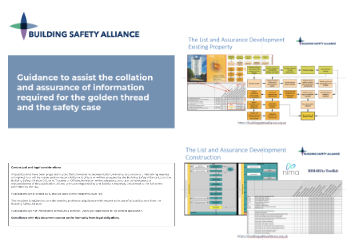Construction Problems Avoided By Using A Modular Approach
Contents |
[edit] Introduction
Modular construction is quickly becoming the a popular method of construction in the UK. It is a fast, cost-effective and efficient method of development that is revolutionising the way that the world builds. Here we discuss the construction problems that can be avoided by using a modular approach.
[edit] Build time
Traditional on-site construction follows a linear construction method, meaning every step needs to be completed before the next one can begin. All construction is carried out onsite and can be affected by several factors, including the weather and labour inefficiencies. With so many elements to coordinate, an issue with just one part can affect the entire build schedule. As a result, traditional construction projects regularly overrun.
For example, concrete is a stable material in the construction industry. It’s sturdy and durable, but it is also a time-consuming material. Concrete structures can take months to develop due to custom engineering. Preparation for the concrete construction then needs to be carried out, materials procured, and specialised labourers and appropriate machinery sourced. The approval and preparation process alone can take months.
Modular building projects use prefabricated elements that are assembled in a factory and transported to the site entirely or mostly complete. Allowing critical aspects of a build to run concurrently. While modular buildings are being constructed away from the site, foundation work can be carried out at the same time. The resulting building can be completed up to 50% quicker.
[edit] Impact on business
Carrying out construction work on the site of your business can cause significant disruption to day-to-day running and can potentially result in a loss of income. Building off-site, 80% of the construction activity is done away from the business location, and the modular buildings are transported to the site flat-packed and ready to build. Meaning there is far less disruption and noise - significantly reducing the impact physically and financially.
[edit] Eco-friendly materials
Traditional building materials and methods are in general not eco-friendly. Concrete is not an environmentally friendly material, either to make, or to use, or even to dispose of. Paints used often contain damaging hydrocarbons and solvents, and plastics and composite timbers are also commonplace.
Modular constructions can be kinder to the environment using eco-friendly and recycled building materials. Modular buildings are made to specification and approached with eco-friendly, sustainable design at the core.
[edit] Energy efficient
Modular buildings can be very efficient in comparison to traditional constructions. Modular constructions can exceed the standard building regulations requirements by enhanced insulation. The materials used for internal walls improve sound insulation and fire-proofing, and the building structures are extremely airtight which ensures their energy-efficiency.
[edit] Less waste
Research carried out by WRAP has stated that off-site construction can reduce on-site waste by up to 90%. Modular buildings are constructed within a factory, and away from site meaning, the amount of waste that is produced can be significantly reduced as modules are built directly to spec using Computer Aided Manufacturing. The modular approach also reduces the project’s carbon footprint.
[edit] Improved health and safety
The need to work at height can be eliminated as the main part of a modular structure is constructed off-site within a controlled factory environment following strict procedures which have been proven to improve safety.
[edit] About this article
This article was written by MTX Contracts, a UK-based construction specialist delivering bespoke modular building solutions and turnkey fit-outs for the healthcare and education sectors.
[edit] Related articles on Designing Buildings Wiki
- Design for deconstruction.
- Design for deconstruction, BRE modular show house.
- Design for Manufacture and Assembly (DfMA).
- Futuro House.
- Kit house.
- Modern methods of construction.
- Modular buildings in the educational sector.
- Modular classrooms: The Friars Primary School extension
- Off-site construction.
- Off site, on track.
- Off-site prefabrication of buildings: A guide to connection choices.
- Open source architectural plans for modular buildings.
- Plug and play skyscrapers.
- Prefabricated structural panels.
- Prefabrication.
- Self build home.
- Structure relocation.
- Student accommodation.
- Types of building.
- WikiHouse.
- Y:Cube.
- Y:Cube development in Mitcham.
Featured articles and news
International Electrician Day, 10 June 2025
Celebrating the role of electrical engineers from André-Marie Amperè, today and for the future.
New guide for clients launched at Houses of Parliament
'There has never been a more important time for clients to step up and ...ask the right questions'
The impact of recycled slate tiles
Innovation across the decades.
EPC changes for existing buildings
Changes and their context as the new RdSAP methodology comes into use from 15 June.
Skills England publishes Sector skills needs assessments
Priority areas relating to the built environment highlighted and described in brief.
BSRIA HVAC Market Watch - May 2025 Edition
Heat Pump Market Outlook: Policy, Performance & Refrigerant Trends for 2025–2028.
Committing to EDI in construction with CIOB
Built Environment professional bodies deepen commitment to EDI with two new signatories: CIAT and CICES.
Government Grenfell progress report at a glance
Line by line recomendation overview, with links to more details.
An engaging and lively review of his professional life.
Sustainable heating for listed buildings
A problem that needs to be approached intelligently.
50th Golden anniversary ECA Edmundson apprentice award
Deadline for entries has been extended to Friday 27 June, so don't miss out!
CIAT at the London Festival of Architecture
Designing for Everyone: Breaking Barriers in Inclusive Architecture.
Mixed reactions to apprenticeship and skills reform 2025
A 'welcome shift' for some and a 'backwards step' for others.
Licensing construction in the UK
As the latest report and proposal to licence builders reaches Parliament.
Building Safety Alliance golden thread guidance
Extensive excel checklist of information with guidance document freely accessible.
Fair Payment Code and other payment initiatives
For fair and late payments, need to work together to add value.
Pre-planning delivery programmes and delay penalties
Proposed for housebuilders in government reform: Speeding Up Build Out.
High street health: converting a building for healthcare uses
The benefits of health centres acting as new anchor sites in the high street.

























Comments
[edit] To make a comment about this article, click 'Add a comment' above. Separate your comments from any existing comments by inserting a horizontal line.
Thanks, if you want to write a separate related article rather than a comment, it is free to do so, just search Create a new article. Please do list any source references. Thanks.